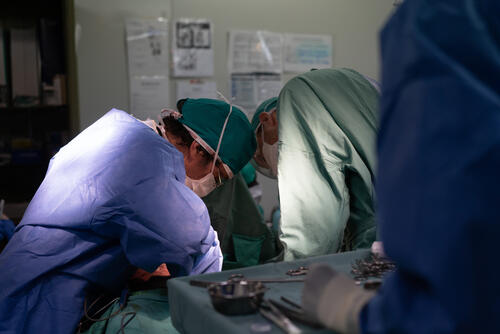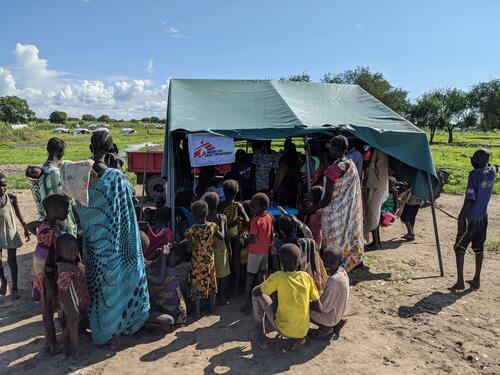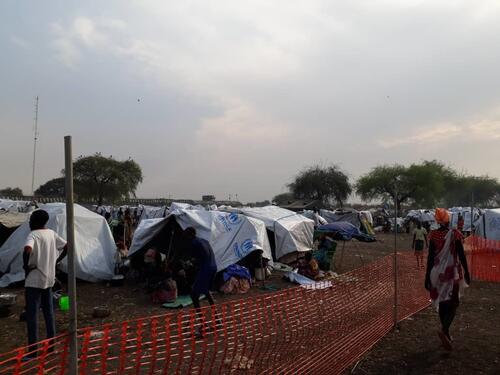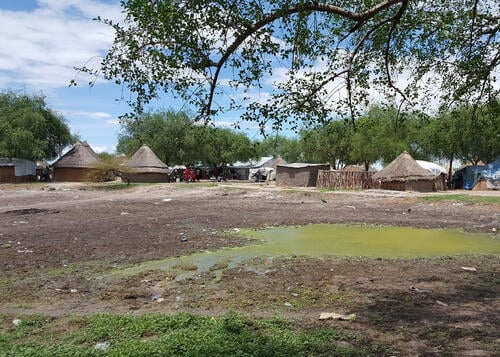Juba - Médecins Sans Frontières (MSF) medical teams have received a mass influx of 83 wounded patients in Pieri and Lankien, South Sudan, over the space of just five days between 9-13 March. Teams have also treated 45 people for gunshot wounds in Pibor over the past month, as waves of intercommunal clashes in Jonglei State and the Greater Pibor Administrative area in eastern South Sudan continue to have a devastating impact on people.
“In Pieri we received 68 wounded people in less than 12 hours,” said Istifanus Chindong Damulak, MSF medical team leader. “It was a massive influx of critical patients, with serious gunshot and stab wounds. In Lankien, we treated a woman who was seven months’ pregnant who lost her baby after her abdomen and groin were slashed with a blade, and a 10-year-old girl who was stabbed several times.”
Access to healthcare in the area remains a considerable challenge, with many people having to walk long distances, in some cases for several days, to reach medical facilities. As a result, many arrived in critical condition with sepsis from infected gunshot wounds.
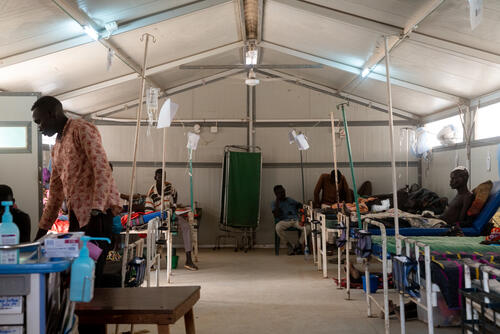
MSF medical teams were able to manage the overwhelming number of critical cases in the primary healthcare centre in Pieri and the hospital in Lankien. The most serious cases were referred by plane to the MSF hospital in the Protection of Civilians (PoC) site in Bentiu, where they underwent surgery.
“We are very worried about the extreme level of violence that some of the patients have been subjected to,” said Claudio Miglietta, MSF Head of Mission in South Sudan. “Violence and its consequences require firstly a medical response to address the trauma. But this is not just a matter of providing medical care, it is also a protection concern, with some of the most vulnerable, including young children and pregnant women, being targeted.”
“This horrific and brutal violence and targeting of the vulnerable has gone beyond the level of intercommunal violence and cattle raiding violence we have recently seen,” said Miglietta. “It needs to come to an immediate halt.”
Life-threatening wounds and extreme violence are not the only consequences of the intercommunal clashes. Thousands of people have recently been forced to flee their homes and seek refuge both in remote rural areas and inside a makeshift camp adjacent to the United Nations Mission in South Sudan (UNMISS) site in Pibor town, where we have set up an emergency response.
In addition to tending to the injured, our teams continue to provide care to pregnant women, address morbidities like malaria, diarrhoea and respiratory infections, and have vaccinated over 3,500 children against measles to prevent a potential outbreak. Living conditions for the people in the UNMISS site continue to be dismal with extremely limited access to clean water, latrines, food and adequate shelter.
“The violent clashes have significantly reduced access to health care for the many thousands of people who have fled to the bush,” said Roderick Embuido, MSF medical coordinator in South Sudan. “For the ones who sought shelter in the site adjacent to UNMISS and who are now crammed together in a closely confined space, the risk of outbreaks is worryingly high. The prolonged shortage of clean water is making the situation even worse. The needs are extreme and our capacity to address them is being stretched to its limits.”



